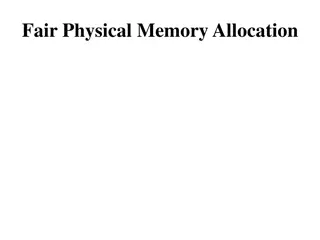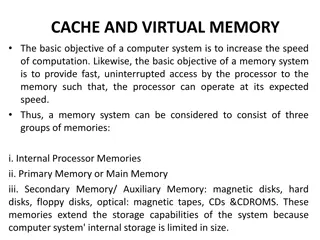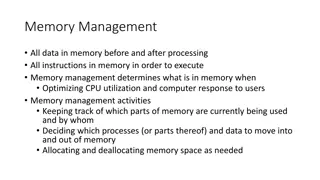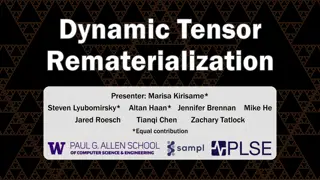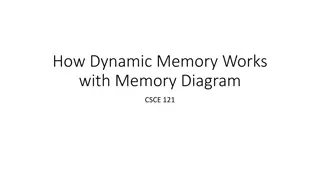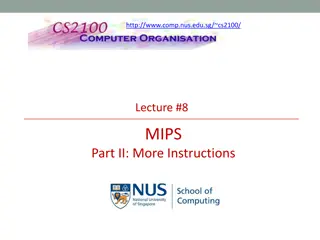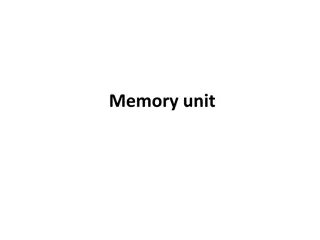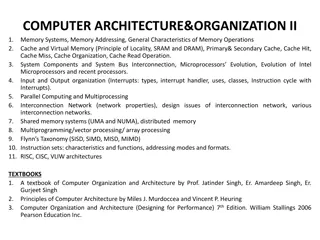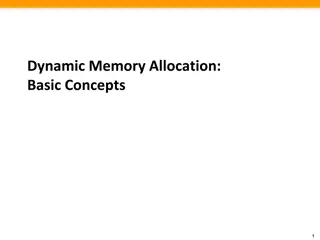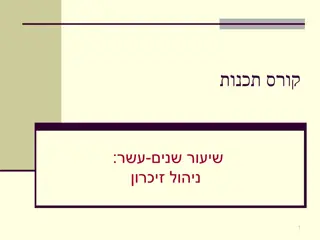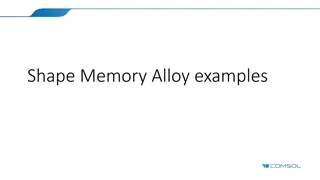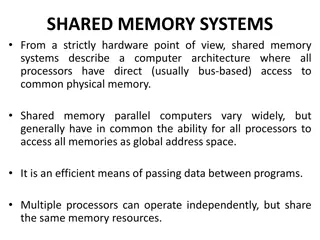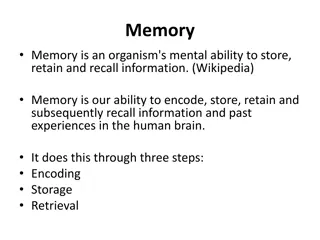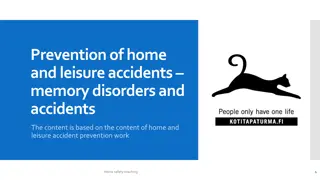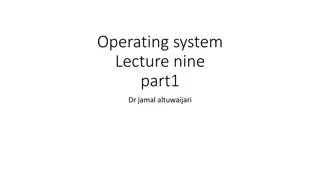Understanding Memory Management Tradeoffs in Web Browsers
Explore the tradeoffs between memory usage, CPU cost, and performance in web browsers. Learn about setting heap limits, Pareto optimality, and compositional heap limit rules to optimize memory usage efficiently.
Download Presentation

Please find below an Image/Link to download the presentation.
The content on the website is provided AS IS for your information and personal use only. It may not be sold, licensed, or shared on other websites without obtaining consent from the author. Download presentation by click this link. If you encounter any issues during the download, it is possible that the publisher has removed the file from their server.
E N D
Presentation Transcript
MemBalancer Marisa Kirisame
Lets reduce browser memory use! JS use a lot of memory in a web browser How to make it use less memory? Set a lower heap limit!
Lower heap limit Less memory usage, more cpu cost. The classical space time tradeoff. How to pick the right limit?
What is a right limit? One abstract framework about tradeoff - pareto-optimality - - - - If a vm use less space and less time than another, it is pareto-improvement If no pareto-improvement can be made for a vm, it is pareto-optimal If a vm use more space and more time than another, not pareto-optimal The set of all pareto optimal point - pareto frontier Pareto optimality allow modeling other tradeoff as well e.g. latency vs throughput, idletime vs critical pause, energy saving
Pareto Optimality But All heap limit is already pareto optimal! To be faster, a bigger heap limit is required To use less memory, more time need to be spent on GC So Is there something to do here?
Pareto Optimality Obviously we don t want spotify to use 1GB of memory (even though it is optimal ) Why? Imagine you are also running vs code. - - Spotify more memory = Vscode less memory! Vscode less memory = Vscode more time = total more time! Does the total system tradeoff make sense?
Compositional Heap Limit Rule Heap Limit Rule: given a program, return a heap limit Given multiple program, a heap limit rule might not be pareto-optimal!
Compositional Heap Limit Rule Heap Limit Rule: given a program, return a heap limit Given multiple program, a heap limit rule might not be pareto-optimal!
Is current v8 heap limit rule compositional Heap Limit Rule: given a program, return a heap limit Currently: about ~2x working memory
Compositional Heap Limit Rule Make a formal model of program time vs memory Take two program, set their total heap size = constant Take derivative of total run time w.r.t heap size split, optimize
The squareroot rule Result: Memory should be W + Sqrt(W) Giving 1MB to big heap < 1MB to small heap Give me 1000$ > Give bill gate 1000$ time ~ 1/memory So - instead of a proportional rule, a square root rule is used Compare to baseline - take memory from big heap, give to small heap Just like robinhood!
W + Sqrt(Wg/cs) More measurement improve the result Enrich our mathematical model More Extra Memory when: - - - More working memory (W) Allocate faster (g) GC slower (s) With a tunable parameter c
Flexible: Tunable parameter c Represent the exchange rate between space and time W + Sqrt(Wg/cs): Higher c = less memory API for our model! Tune it to reflect practical concern! Higher c for e.g.: - - - Background tab Phone Outdated Hardware
Potential Implementation in v8 Per heap variable: w(working memory), g(allocation rate), s(gc speed) On CollectGarbage(): update w, g, s at gc Heartbeat thread: update g every second w g s are atomic variable, cheap and safe! When w, g, or s is updated: also update heap limit.
Result Turned off MPN, Memory Reducer, MemCap, the default rule, for MemBalancer Also cleaner - removed a bunch of heuristic from v8 Save ~15% memory on real web page!
Q Chrome A/B Test? Incremental GC? Concurrent GC? Cross Component GC?






